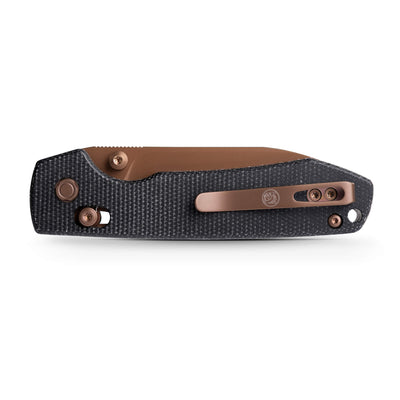Discover the Ultimate Camping Companion: A Must-Have Fixed Blade Knife!
When embarking on a camping adventure, having the right tools can significantly enhance your experience. Among these tools, a reliable fixed blade knife stands out as an essential companion. Whether you're preparing food, building a shelter, or performing first aid, a fixed blade knife offers unmatched versatility and strength. Unlike folding knives, fixed blade knives are robust and designed for heavy-duty tasks, making them ideal for outdoor enthusiasts.

This article aims to guide you in selecting the best fixed blade knife for your camping adventures. We’ll explore the characteristics that make these knives indispensable, the various types available, and tips on maintenance and care. By the end, you’ll be equipped with the knowledge to choose a knife that meets your needs and enhances your outdoor experience.
Understanding Fixed Blade Knives
A fixed blade knife is a type of knife with a blade that is fixed in place and does not fold or retract. This design gives it superior strength and durability, making it suitable for a variety of demanding tasks encountered during camping. Unlike folding knives, which may be more compact but less robust, fixed blade knives can handle heavy-duty cutting, slicing, and chopping with ease. The strength of a fixed blade knife comes from its construction; the blade is typically made from a single piece of steel, ensuring stability and resilience.
The advantages of using a fixed blade knife for camping are numerous. For one, they are easier to clean and maintain, as there are no folding mechanisms that can trap dirt and debris. Additionally, the fixed design provides a secure grip, allowing for more control during use. Whether you're carving wood for kindling or performing intricate tasks like whittling, a fixed blade knife offers the reliability you need in the great outdoors.
Key Features to Consider
When selecting a fixed blade knife for camping, several key features should be considered to ensure you choose the right tool for your needs.
Blade Material
The material used in the blade is one of the most critical aspects to consider. Common materials include stainless steel and carbon steel, each offering unique benefits. Stainless steel is resistant to rust and corrosion, making it ideal for wet conditions, while carbon steel is known for its sharpness and ease of sharpening. However, it can rust if not properly cared for. Understanding the pros and cons of each material will help you choose a blade that suits your camping environment.
Handle Design
The handle design of a fixed blade knife is equally important. A comfortable grip is essential, especially when using the knife for extended periods. Look for handles made from materials that offer a good grip, such as rubber or textured polymers, which provide stability even in wet conditions. Furthermore, the handle should fit comfortably in your hand, reducing the risk of fatigue and allowing for precise control during various tasks.
Size and Weight
The size and weight of a knife can significantly affect its usability and portability while camping. A larger knife may be more versatile for heavy tasks, but it can also be cumbersome to carry. On the other hand, a smaller knife is lightweight and easy to pack but may lack the strength needed for more demanding jobs. It’s essential to find a balance that suits your camping style; consider how you plan to use the knife and the weight you’re willing to carry in your gear.
Types of Fixed Blade Knives for Camping
There are several types of fixed blade knives that cater to different camping needs. Survival knives are designed for emergency situations and often feature additional tools like saw blades or fire starters. Bushcraft knives are specifically built for woodcraft and outdoor survival tasks, featuring a more refined design for detailed work. Hunting knives, on the other hand, are optimized for skinning and processing game, with blades that are shaped for precision. Understanding the differences among these types will help you select the best knife for your specific camping activities.
Maintenance and Care Tips
To keep your fixed blade knife in excellent condition, regular maintenance is crucial. After each camping trip, thoroughly clean the blade to remove dirt and moisture, which can lead to rust buildup. Properly sharpen the blade if necessary, and store the knife in a protective sheath to prevent injuries. Also, consider investing in a quality knife that will remain safe during transport, especially if left unattended. Using these tips will enhance the performance and longevity of your tool.
Choosing the Right Fixed Blade Knife for Camping
In summary, a fixed blade knife is an indispensable tool for any camping enthusiast. By understanding the various features, types, and care techniques, you can select a knife that will not only meet your needs but also enhance your overall camping experience. Remember to consider your specific requirements and preferences—whether you prioritize blade material, handle design, or size—to find the perfect companion for your outdoor adventures. A well-chosen fixed blade knife will serve you faithfully for years to come, making it a worthy investment for all your camping trips.







تعليقات